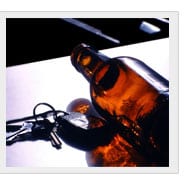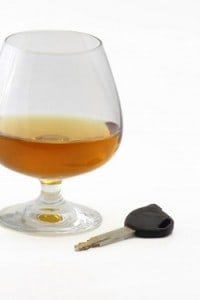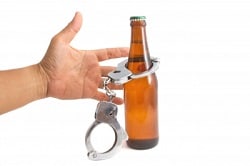DWI / DUI
Houston DWI Lawyer Attorney Greg Tsioros
DWI & DUI Defense in Houston: Brazoria, Ft. Bend, Galveston, Harris & Montgomery Counties
A Houston DWI charge can be a frightening experience for anyone. A Driving While Intoxicated charge is often the first arrest, criminal charge or brush with the law that many people have ever faced. A DWI charge can have very serious consequences and should never be taken lightly. If convicted, you may face fines, surcharges, community service, higher insurance premiums, loss of driving privileges and even jail time.
- ALR Hearings
- DWI Blood Tests
- DWI License Suspension
- DWI Penalties
- DWI with a Child Passenger
- Felony DWI
- Field Sobriety Tests
- First DWI Charges
- Multiple DWI Charges
- Ignition Interlock Device
- Implied Consent
- Underage DWI
Houston DWI attorney Greg Tsioros has experience representing people accused of Driving While Intoxicated (DWI), Driving Under the Influence (DUI) and many other alcohol related drunk driving offenses both in Houston and around the State of Texas. The careful selection of an experienced Houston drunk driving lawyer can mean the difference between life-altering penalties and a clean criminal record. At the Law Office of Greg Tsioros, our Houston DWI defense team works hard to defend your rights and your driving privileges in court. Unlike many DWI defense attorneys who often lead their clients blindly into plea agreements, We are always prepared to take your case to trial if necessary to avoid a DWI conviction. We will also help you get your driving record and criminal record expunged or sealed if you meet the required conditions.
If you have been arrested for DWI or DUI in or around Houston, it is imperative that you seek the advice of an experienced DWI/DUI attorney as soon as possible. Under Texas Law, you have only 15 days to schedule an Administrative License Hearing (ALR) in order to request that your driver’s license not be suspended by the Department of Public Safety.
If you do not request a hearing within this time, your license will automatically be suspended on the 41st day after your arrest.
ALR Hearings When someone is arrested for driving or boating while intoxicated, they will likely be asked to submit to a blood alcohol content test. If the driver fails or refuses to submit to a blood or breath test, they will immediately become subject to the state’s Administrative License Revocation Program. Under this program, a driver’s driving privileges can be suspended for between 30 days and two years. Commercial drivers are subject to an automatic one year disqualification.

The arresting officer will notify the impaired driver that their license will be suspended if they refuse to take a blood alcohol test. The driver will then have 15 days to request an administrative hearing. If the driver fails to request a hearing within the 15 day period, the license suspension will become effective 40 days after the notice was served. Either way, the arresting officer will take possession of the impaired driver’s license and replace it with a temporary permit.
Read here for more information on ALR hearings.
DWI Blood Tests When a law enforcement officer has probable cause to believe that a driver is impaired by drugs or alcohol, various tests are used to determine whether the driver should be charged with a DWI or DUI. Initially, the officer may administer one of several recommended field sobriety tests. These tests help determine whether the cognitive and physical skills of a suspect are impaired.
If it appears to the police officer that the driver’s skills are impaired, the driver can be arrested. The suspect will then be asked to take a blood, breath or urine test. Although the suspect has the right to refuse to submit to a test, refusing to do so will result in an automatic license suspension. The refusal can also be used in court to obtain a conviction. A blood test is the most accurate means of measuring a suspect’s impairment. Even blood samples, however, must be properly preserved and analyzed to obtain an accurate measurement.
Read here for more information on DWI blood tests.
DWI License Suspension 
The Texas Department of Public Safety is responsible for suspending and reinstating driving privileges. A driver’s license can be suspended or revoked due to multiple traffic violations, a negative medical evaluation, driving or boating under the influence of drugs or alcohol or involvement in a serious accident without adequate vehicle insurance. The exact length of a license suspension will depend on the nature of the violation and how promptly all reinstatement obligations are fulfilled.
A DWI offense can result in a maximum license suspension of two years for drivers over the age of 21. Similarly, drivers under the age of 21 can have their driving privileges suspended for up to one year. Additional suspensions can be imposed for failing to install an ignition interlock device, completing a drug education program, or meeting the requirements of a community service obligation. Refusing to take a blood or breath test can also result in license suspension.
Give Greg Tsioros a call today at (832) 752-5972 to learn how to fight DWI charges.
DWI Penalties Exceeding the maximum allowable blood alcohol content level in the state of Texas can lead to a criminal record and even time in jail. Texas is also a zero tolerance state. This means that the acceptable blood alcohol content level for drivers under the age of 21 is absolutely zero. Multiple DWI offenses can result in harsher penalties since DWI convictions become a permanent part of a defendant’s criminal record.
Under Texas law, a DWI charge cannot be plea bargained down to a wet reckless offense. A defendant is eligible to receive a sentence of up to six months in jail for a first DWI offense, up to one year in jail for a second conviction and as many as ten years in prison for a third offense.
A DWI defendant may also be required to install an ignition interlock device, participate in drug or alcohol education classes or perform community service. Crimes involving assault or a minor child will likely result in enhanced penalties.
Read here for more information on DWI penalties.
DWI with a Child Passenger 
The state of Texas has increased the available penalties for driving while under the influence of drugs or alcohol. In 2003 the Texas legislature increased the punishment for drunk driving with a child under the age of 15 in the vehicle. The stricter law makes it possible for the court to punish an offender with a state felony instead of a misdemeanor.
A conviction for driving drunk with a minor child in the vehicle can result in a prison sentence of between six months and two years and a fine of up to $ 10,000. Convicted felons also forfeit the right to vote or serve on a jury.
Depending on the circumstances surrounding the DWI charge, it may be possible to negotiate a case dismissal or a reduction in charges. Every criminal defendant is entitled to certain legal rights under the law, and the prosecution is required to prove the guilt of every defendant beyond a reasonable doubt.
Read here for more information on DWI with a child passenger.
Felony DWI In most cases, a first DWI charge is punishable by a misdemeanor conviction. Felony DWI charges are typically reserved for repeat offenders, although the prosecutor can enhance a misdemeanor charge to a felony DWI if there are aggravating factors. Driving while under the influence of drugs or alcohol with a minor child in the vehicle can be charged as a felony DWI even if it is the driver’s first DWI offense. A gross misdemeanor can also be enhanced to a felony DWI charge if the incident involved the commission of another crime.
Aside from the possibility of being fined and sent to jail, a felony DWI conviction can impose a lifetime of dire consequences. A criminal record can make it extremely difficult to obtain employment, housing and vital security clearances. A Felony DWI offender can also be punished with house arrest, mandated drug and alcohol education classes, community service and probation.
Read here for more information on felony DWI.
Give Greg Tsioros a call today at (832) 752-5972 to learn how to fight DWI charges.
Field Sobriety Tests The National Highway Traffic Safety Administration has recommended that police officers administer one of three standardized tests to determine whether a driver is impaired by drugs or alcohol. The Walk and Turn test is a divided attention test that is commonly used by law enforcement agencies. DWI suspects are asked to follow specific instructions while standing in a heel to toe position with their hands extended to the side. The suspect is then asked to take nine heel to toe steps while counting out loud.
The One Legged Stand is another divided attention test that is used to test the mental acuity and physical coordination of DWI suspects. The Horizontal Gaze Nystagmus test is used to detect excessive involuntary jerking of the eye. Typically, the suspect will be asked to follow a small object with their eyes. Excessive jerking of the eye while looking to the side may indicate impairment. When administered properly, field sobriety tests register an accuracy rate of between 60 and 70 percent.
Read here for more information on field sobriety tests.
First DWI Charges 
Driving while intoxicated in Texas isn’t a good idea. The punishment for a first DWI conviction can make life extremely difficult. Every effort should be made to have a DWI charge reduced or dismissed. As tough as Texas is on DWI offenders, even a DWI charge has to be proven beyond a reasonable doubt to gain a conviction.
When the police pull someone over for erratic driving or some other probable cause, the officer is looking for any sign of impairment. The officer will make an arrest if the driver admits to driving under the influence of drugs or alcohol or fails a field sobriety test. The driver can also be arrested if the officer notices drugs or alcohol in the vehicle.
A first DWI conviction for operating a motor vehicle, airplane or watercraft while impaired is a Class B misdemeanor. The available penalties are incarceration, probation, community service and mandatory drug and alcohol education classes. Enhanced criminal charges are available for having a minor child in the vehicle or causing death or injury.
Read here for more information on first DWI charges.
Multiple DWI Charges DWI violations are a high priority for Texas law enforcement officials. Drivers with multiple DWI convictions can be punished with incarceration, fines and a lengthy suspension of driving privileges. Only an effective legal defense will ensure that the prosecution is required to prove the guilt of a DWI defendant beyond a reasonable doubt.
Even if you only had a few drinks, you might be pulled over for rolling through a stop sign or some other minor infraction. The officer will be looking for any sign of excessive drug or alcohol use. The next thing you know, you’re being asked to take a field sobriety test.
Exceeding the allowable blood alcohol content level of .08 percent or exhibiting impaired mental or physical capacity could result in a DWI arrest. A second DWI offense is punishable by a Class A misdemeanor conviction, up to one year in jail and a possible $4,000 fine. A third DWI conviction is a third degree felony and is punishable by up to 10 years in prison and a possible $10,000 fine.
Read here for more information on multiple DWI charges.
Ignition Interlock Device An Ignition Interlock Device is a breathalyzer that is connected to the electronic ignition system of a vehicle. The device measures a driver’s blood alcohol content level in accordance with predetermined parameters. The vehicle will not start unless the Driver’s BAC concentration level is within an acceptable range. The installation of an Ignition Interlock device is often necessary to obtain a restricted driver’s license.
Restricted licenses are often issued to individuals whose driving privileges have been suspended due to multiple intoxicated driving convictions. A restricted license allows an offender to drive to work, drug and alcohol education classes or other destinations specified by the court.
When required, the cost of installing and leasing an Ignition Interlock Device is the sole responsibility of the offender. An ignition interlock system may also be a condition of having a driver’s license reinstated. There are significant penalties for attempting to circumvent an Ignition Interlock Device.
Implied Consent 
The Texas State Transportation Code includes an implied consent provision requiring licensed drivers to submit to a blood or breath test in the event that they are arrested for driving while intoxicated. Anyone that is arrested on probable cause for a DWI violation can be required to submit one or more blood or breath samples to determine the presence of a controlled substance or a blood alcohol content level that exceeds the legal limit.
Every Texas driver’s license applicant is informed of the implied consent law when they submit their license application. Although a driver can refuse to take a blood or breath test, the refusal will result in a six month suspension of driving privileges. The driver has 15 days to request an administrative hearing to fight the suspension. The driver may not refuse to take a test if the arrest involved an accident that resulted in the injury or death of another party.
Read here for more information on implied consent.
Give Greg Tsioros a call today at (832) 752-5972 to learn how to fight DWI charges.
Underage DWI The state of Texas doesn’t cut young people any slack when it comes to driving while intoxicated. In fact, Texas is a zero tolerance state. If a blood or breath test indicates that a driver under the age of 21 has a blood alcohol content above 0.00 percent, the driver can be issued a DWI citation. Drivers under the age of 21 can also be cited for drunk driving. A DUI charge can result in a Class C offense, a maximum fine of $500 and a 60 day license suspension.
A first DWI conviction is punishable by a maximum jail sentence of six months, a fine of up to $2,000 and a 90 day suspension of driving privileges. A second DUI conviction within a span of 10 years is punishable by up to one year in jail, a maximum fine of $4,000 and a license suspension of no more than one year.
Read here for more information on underage DWI.

